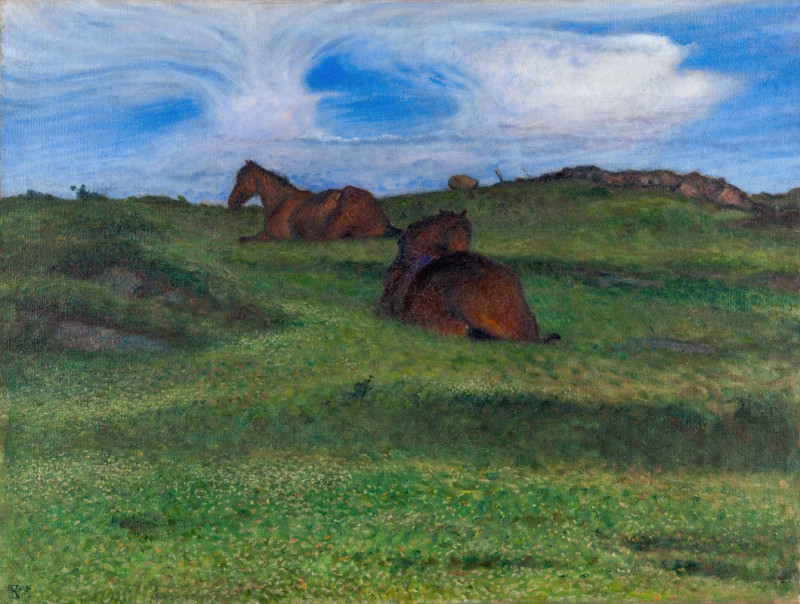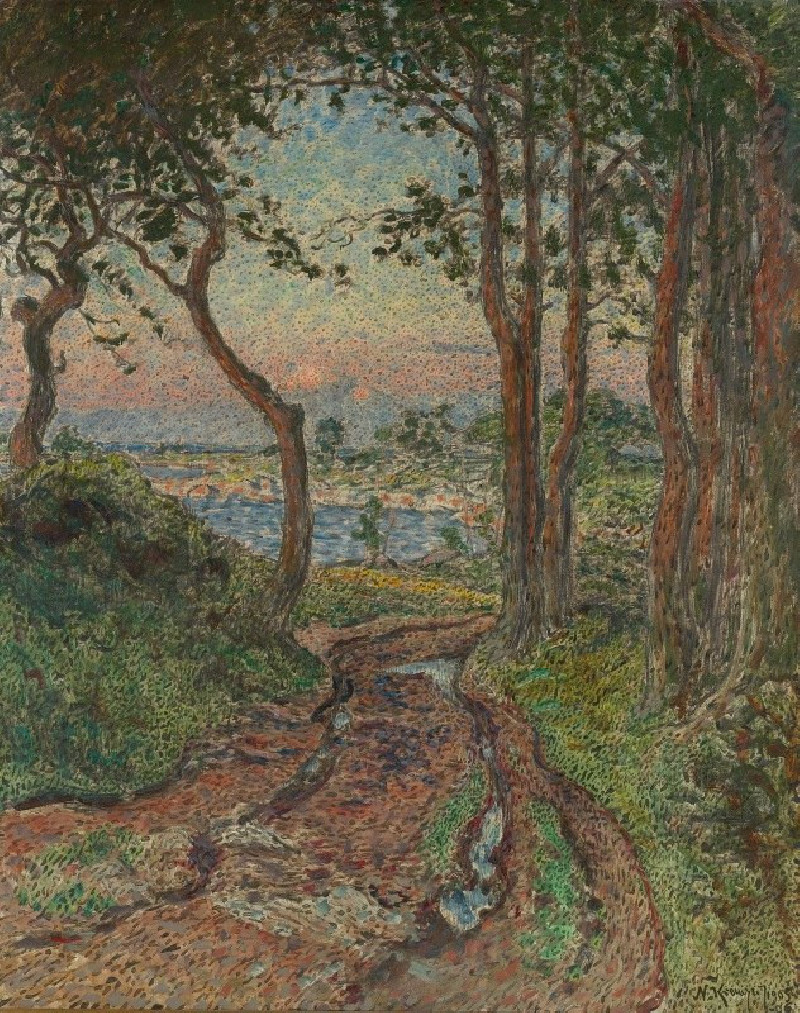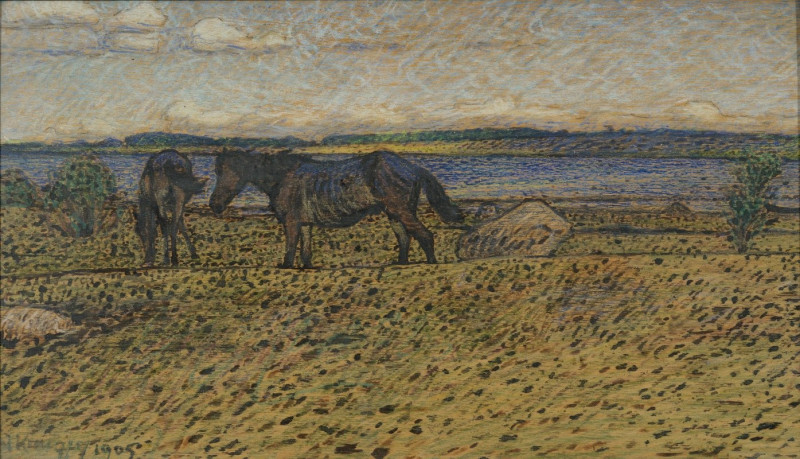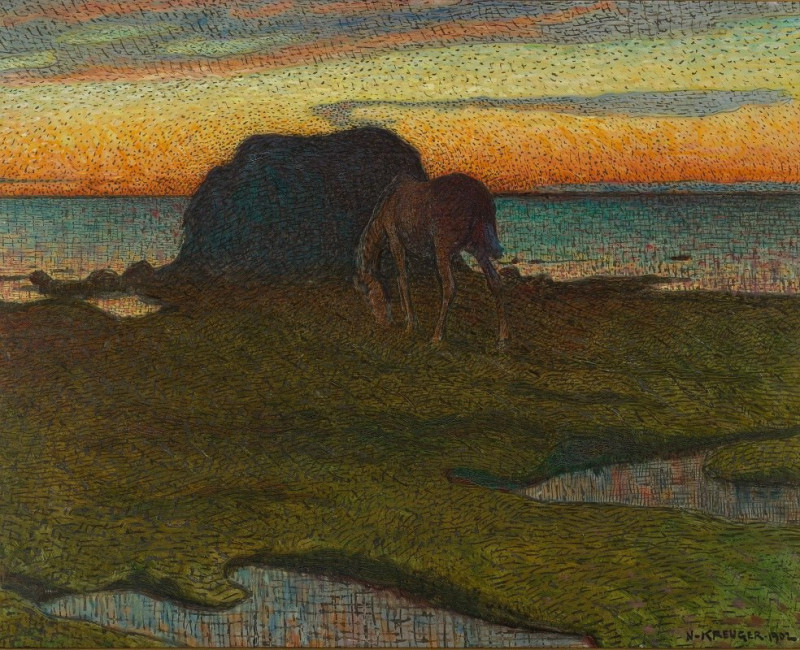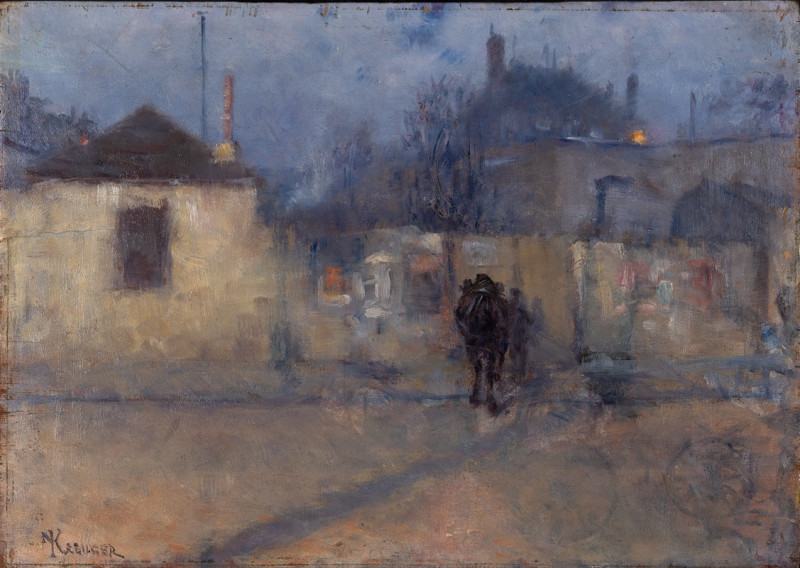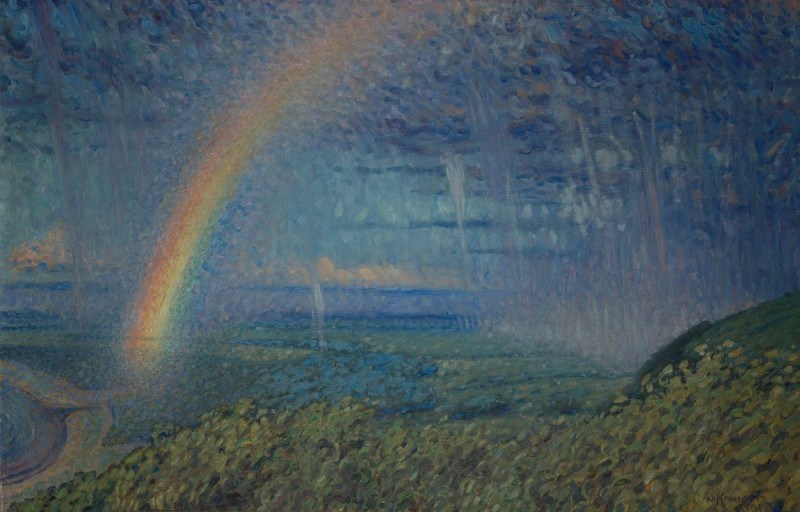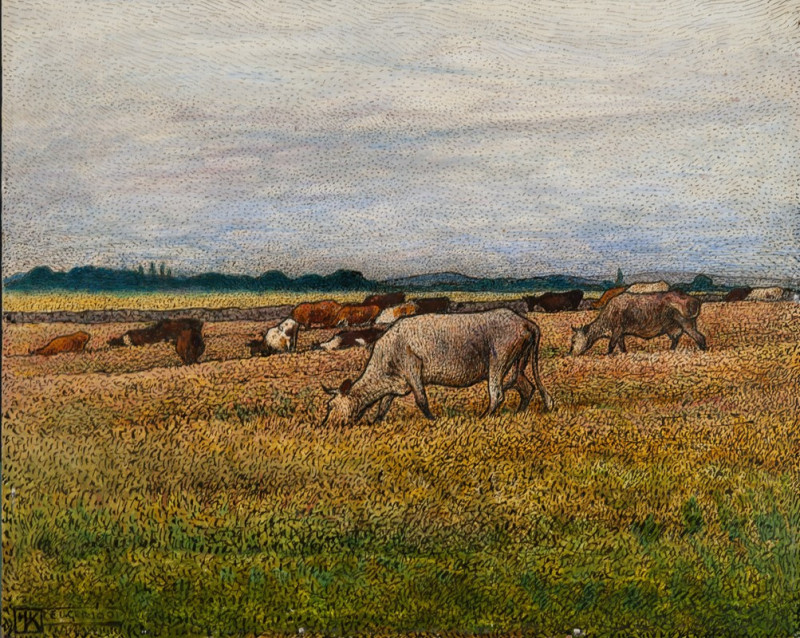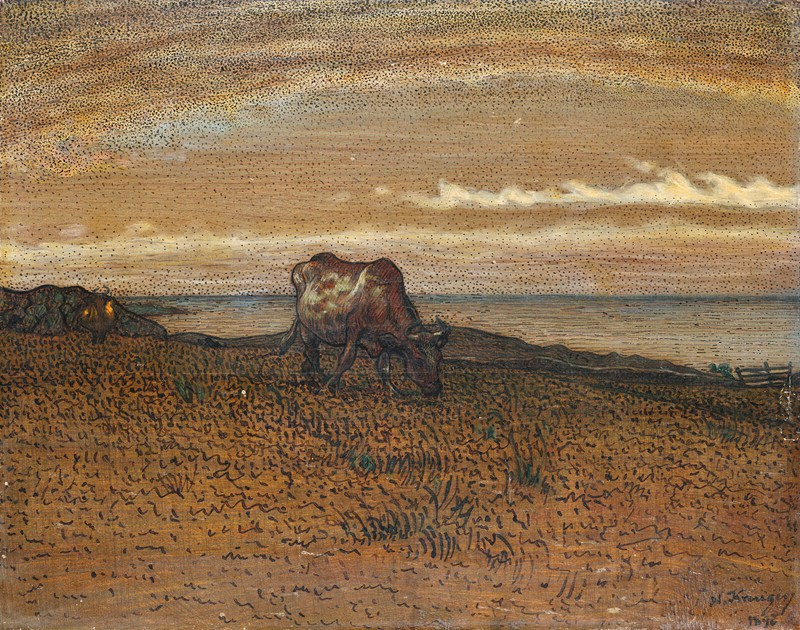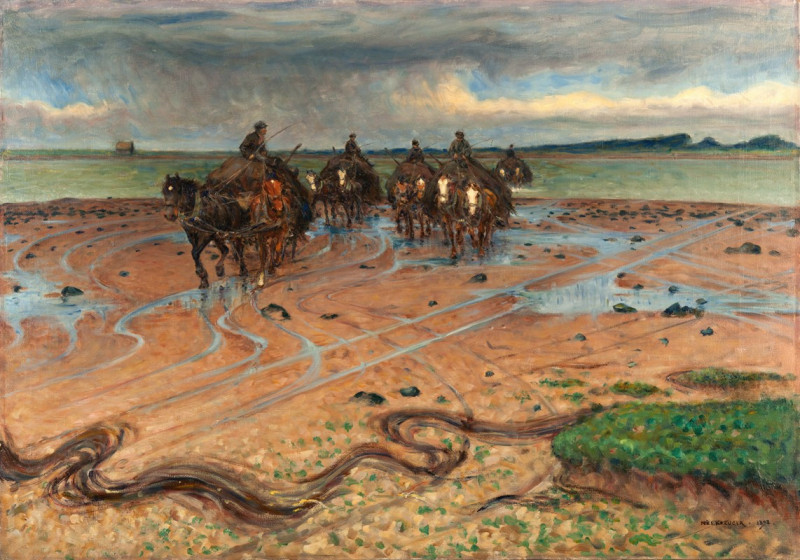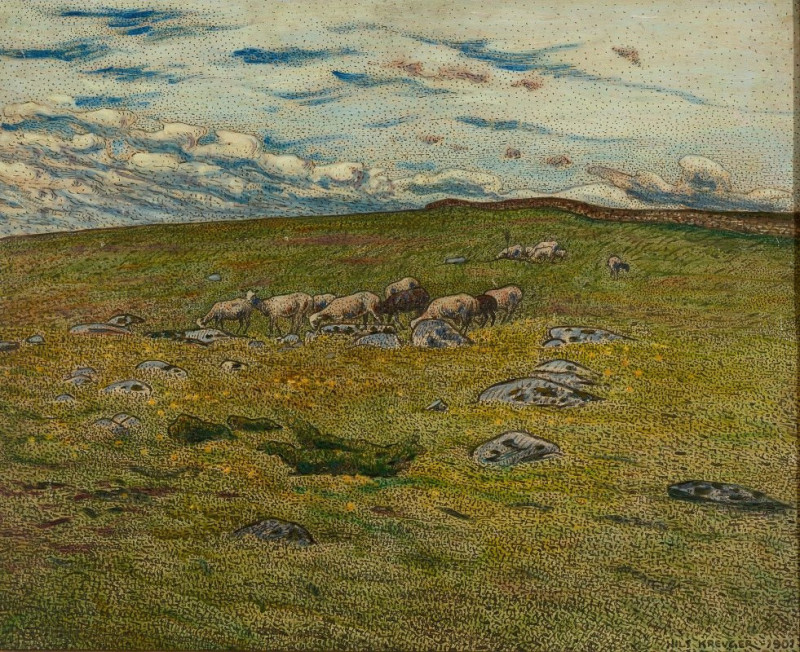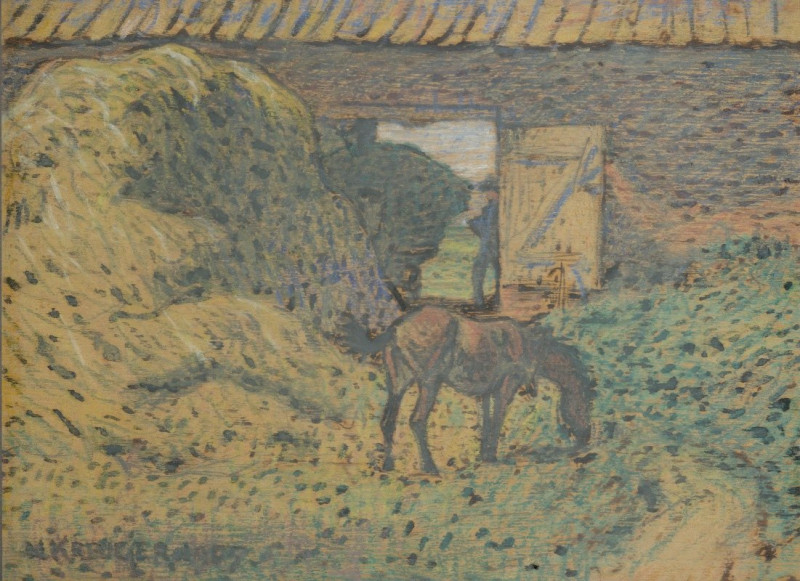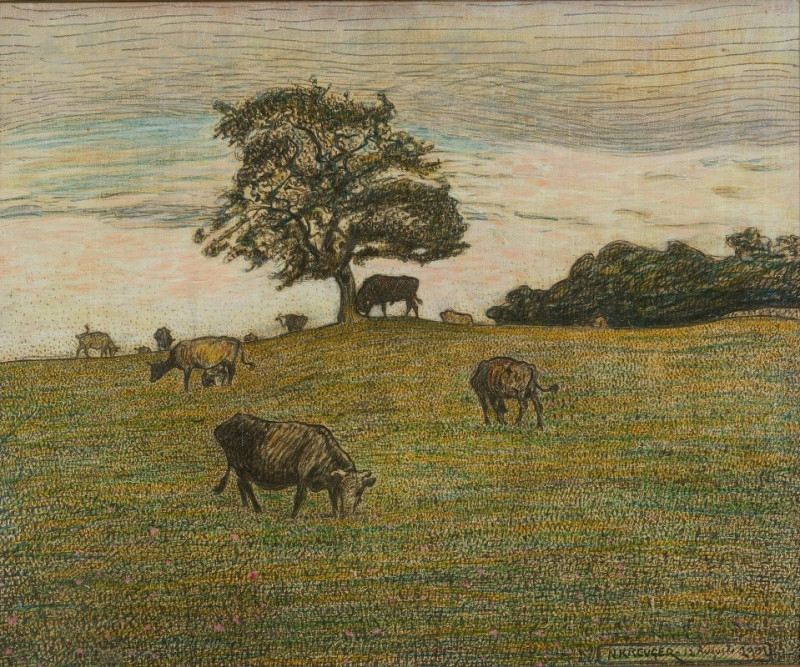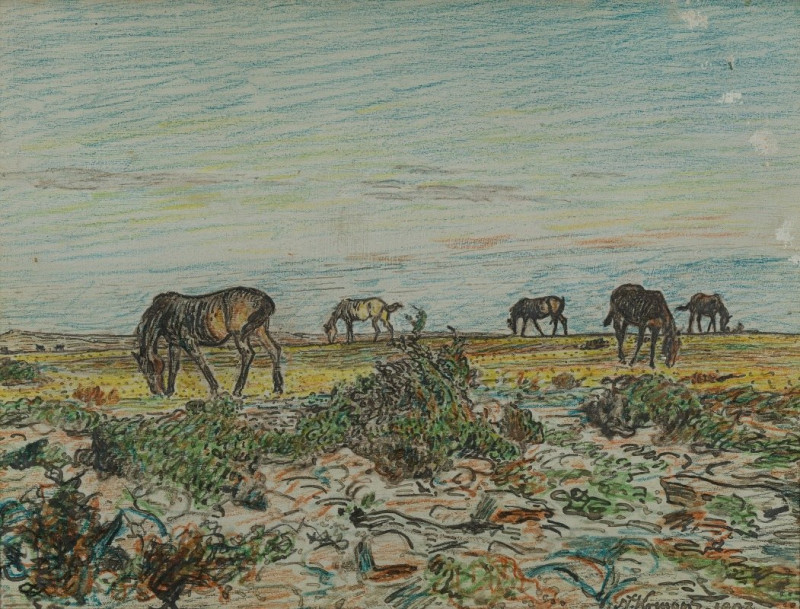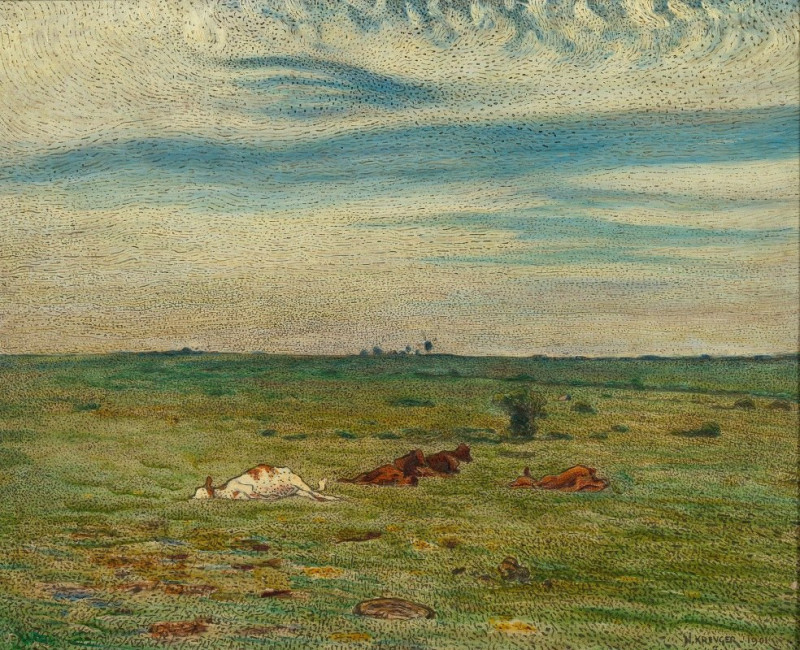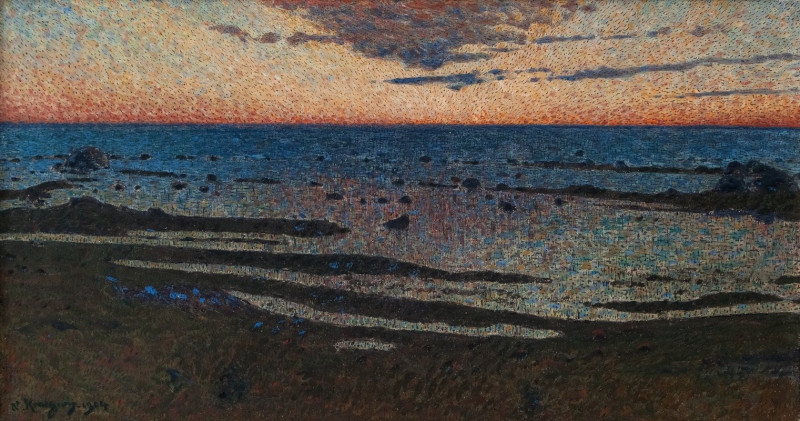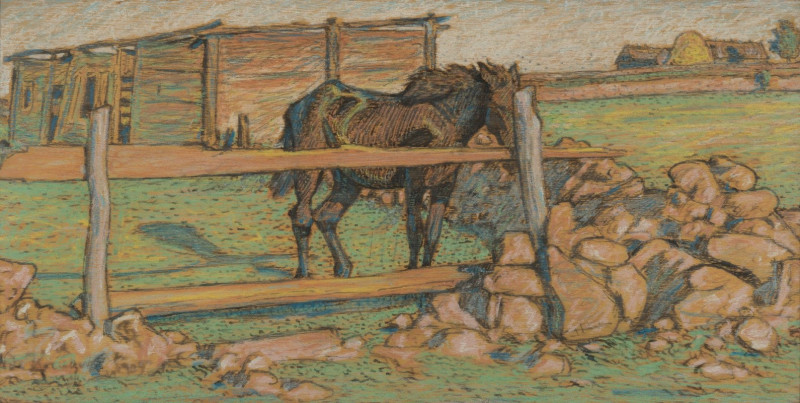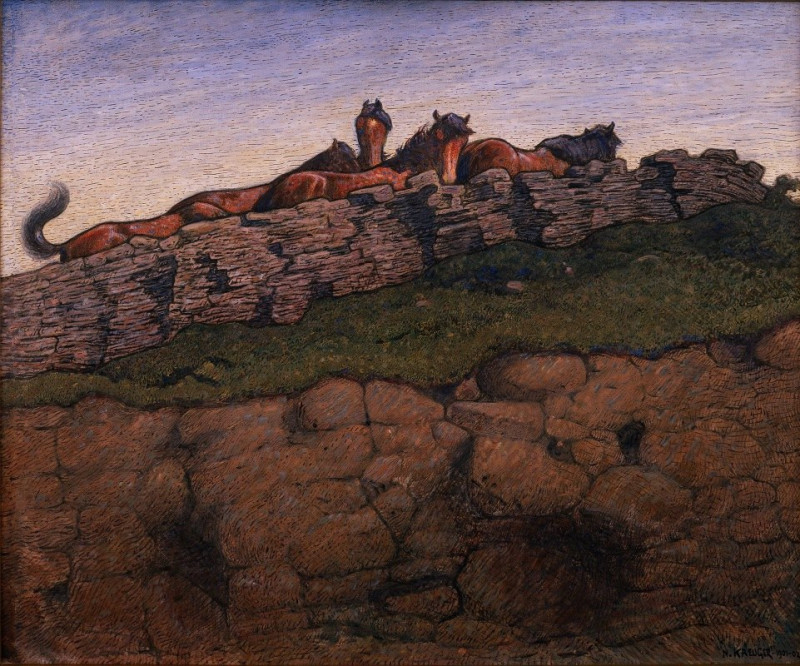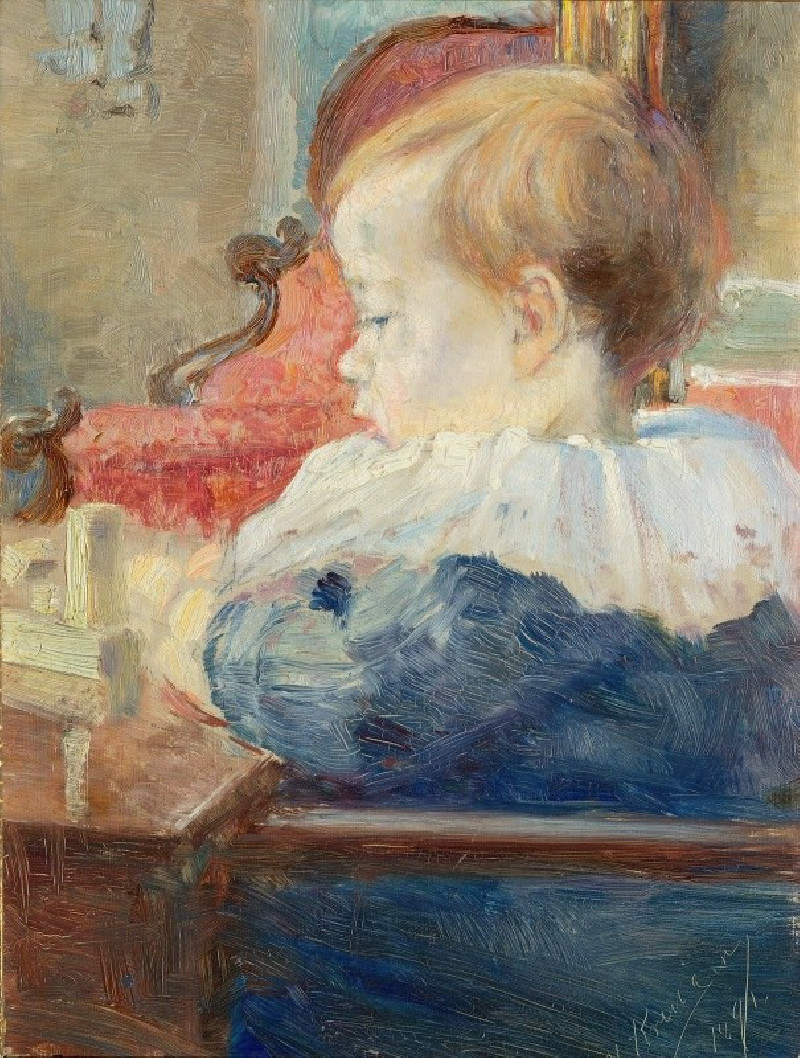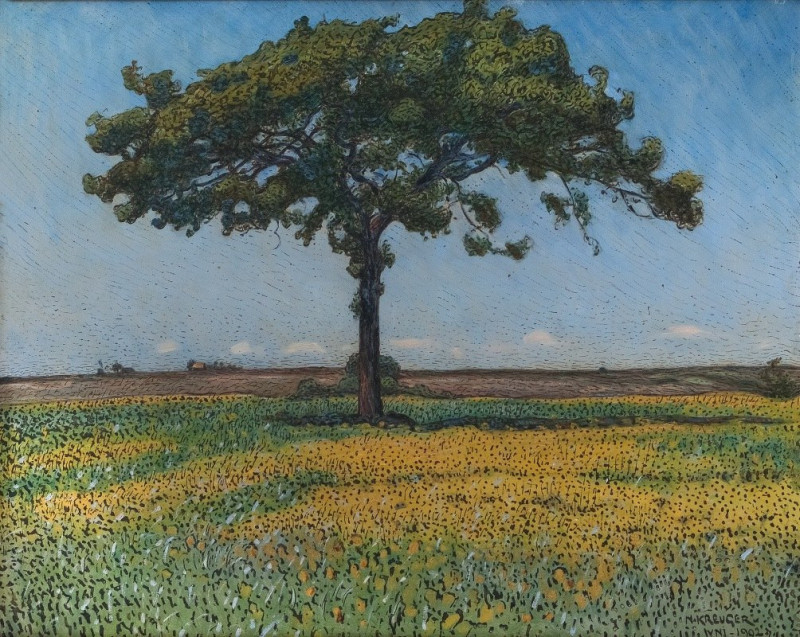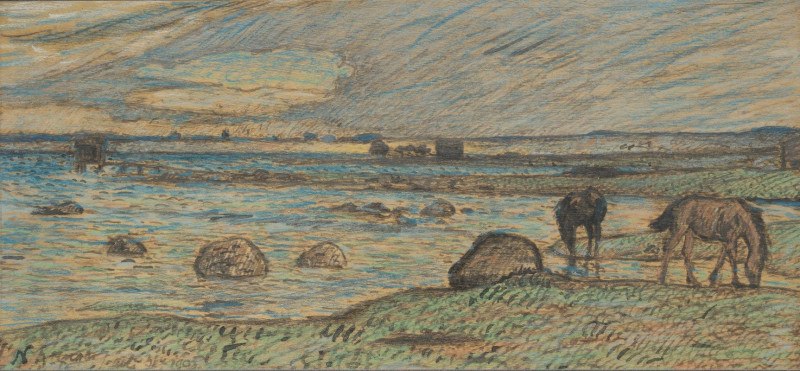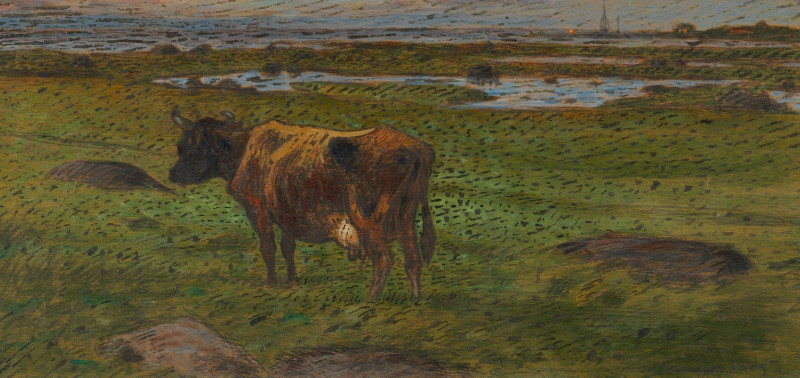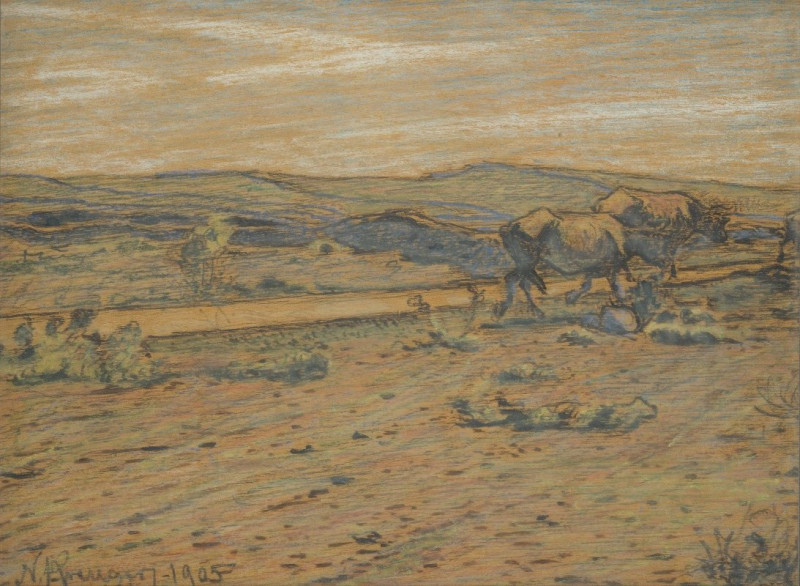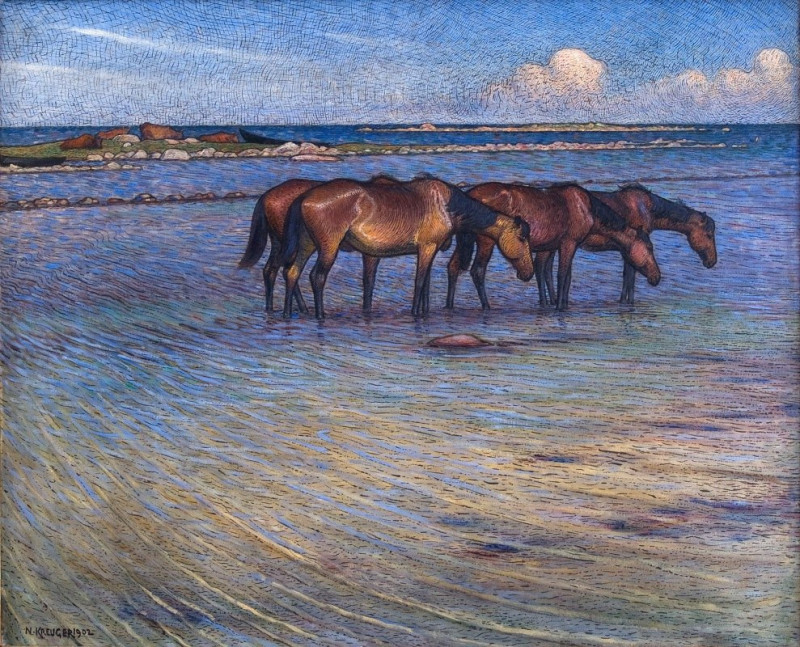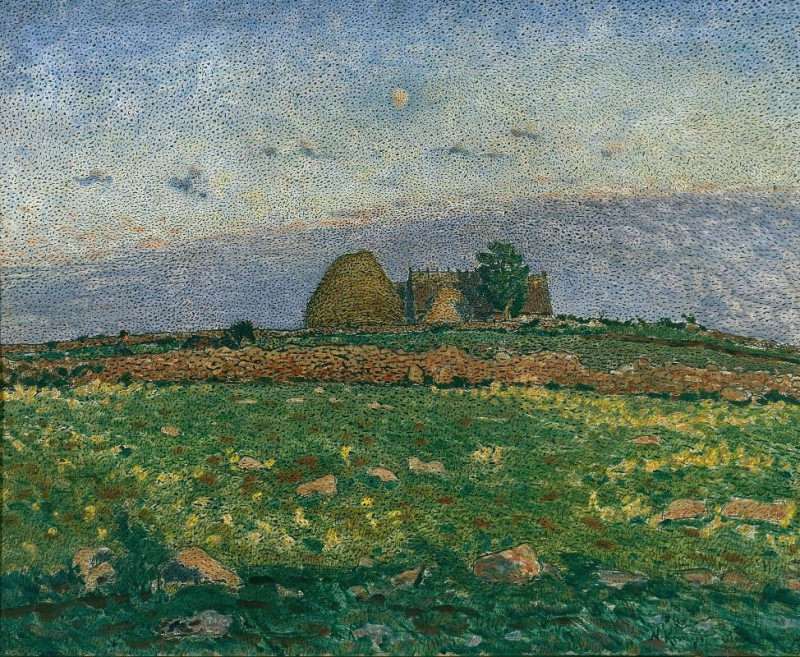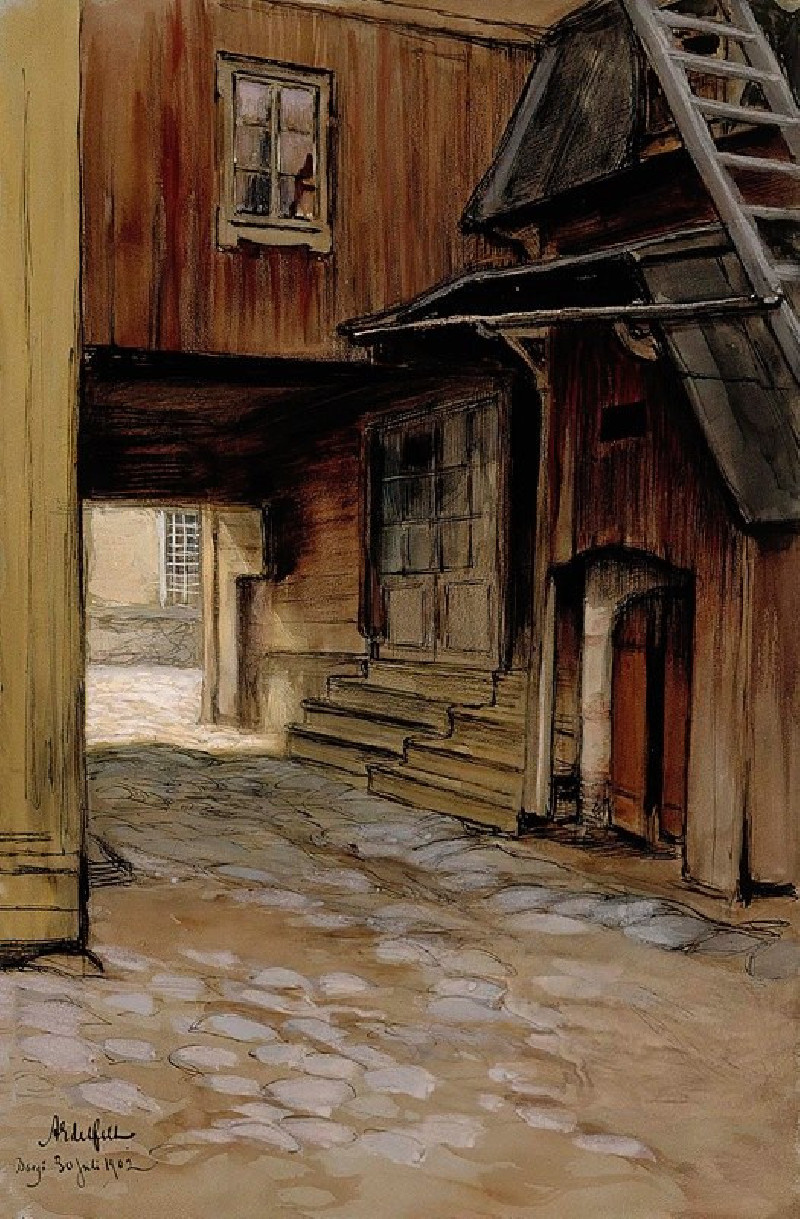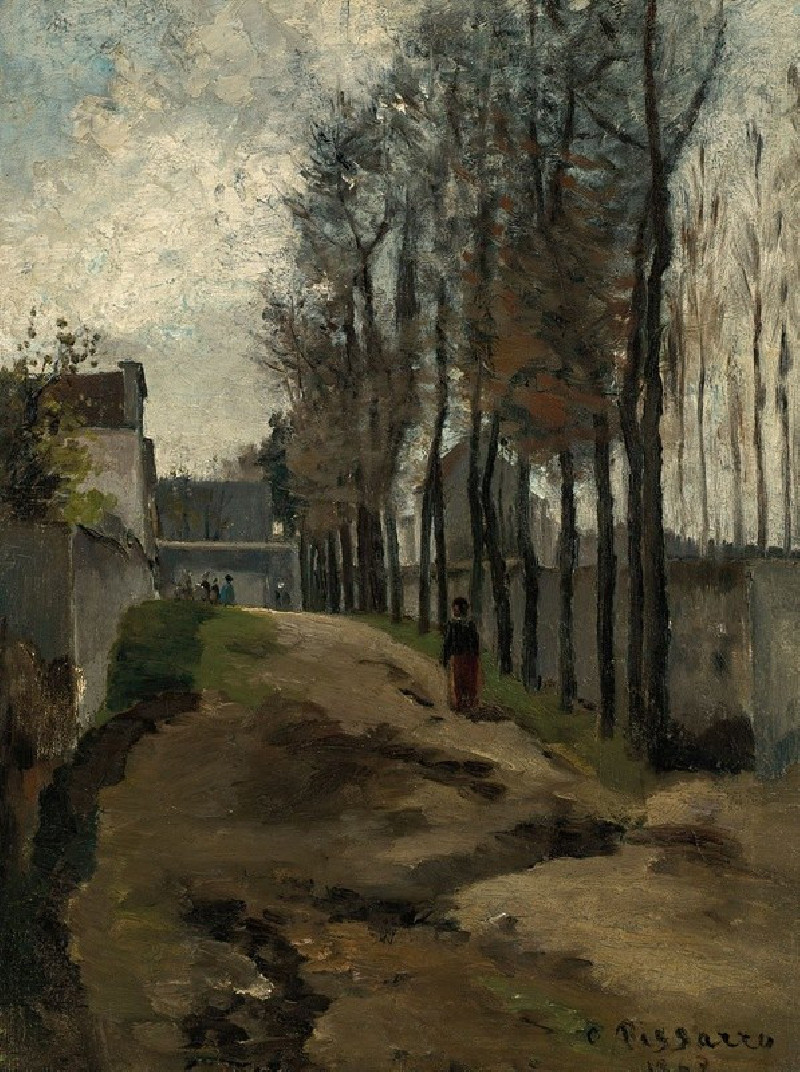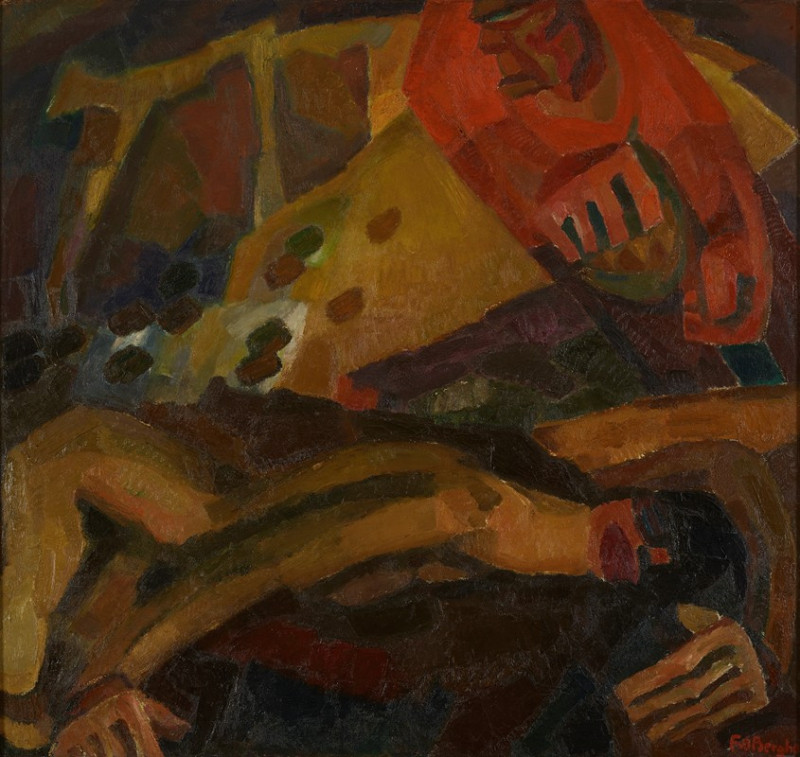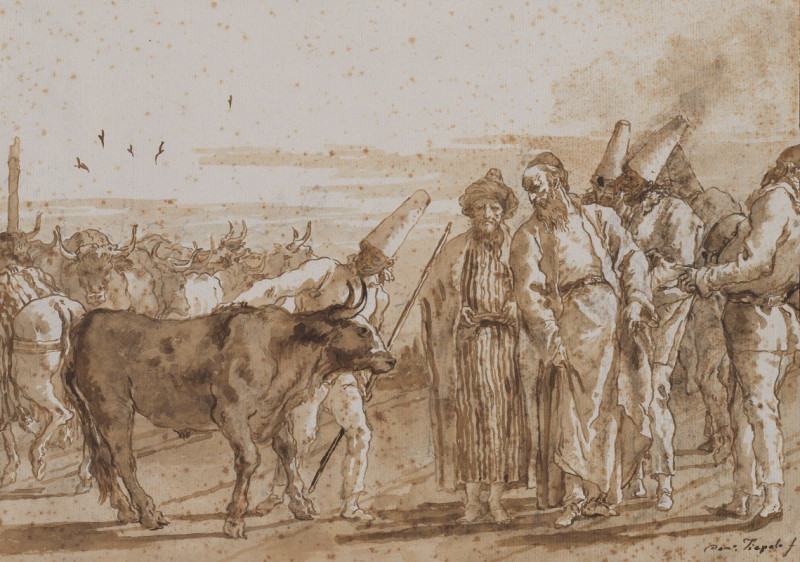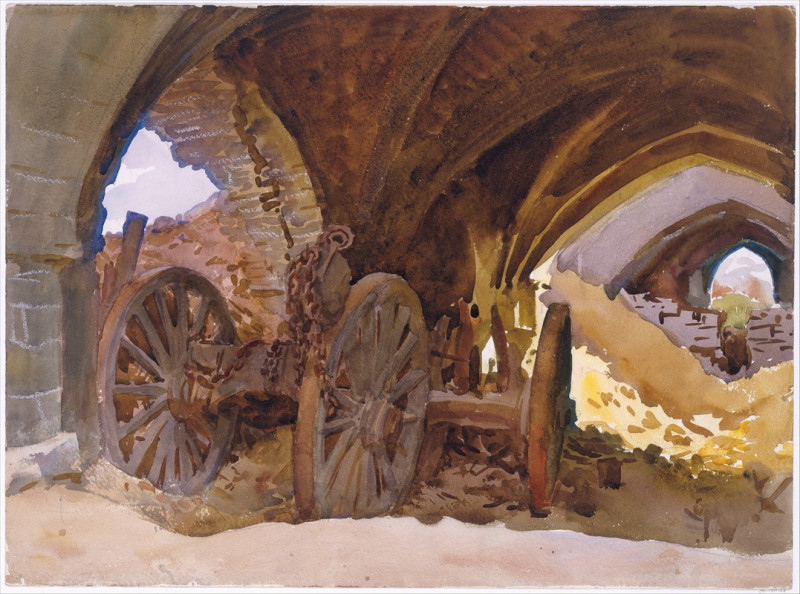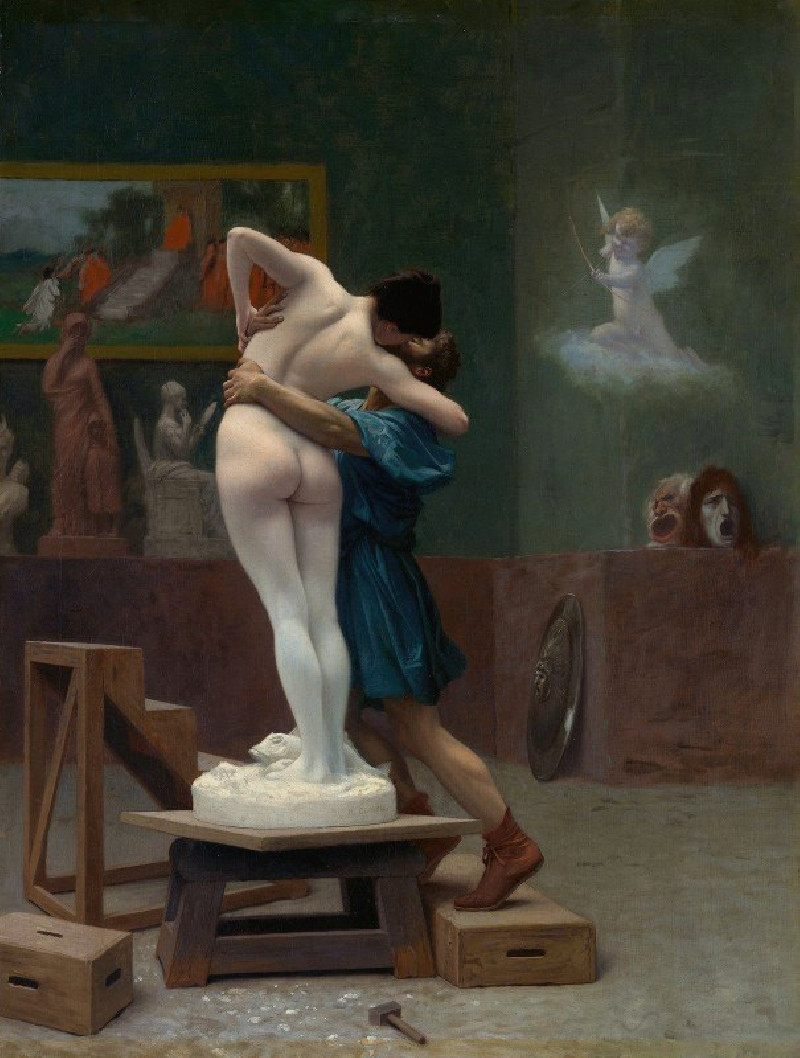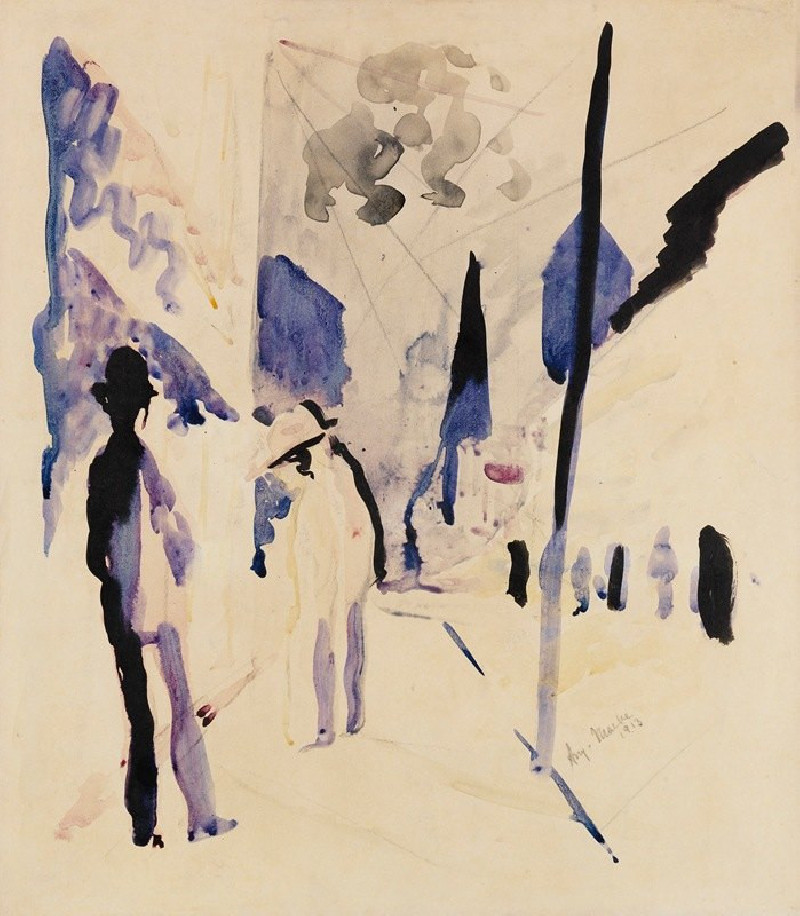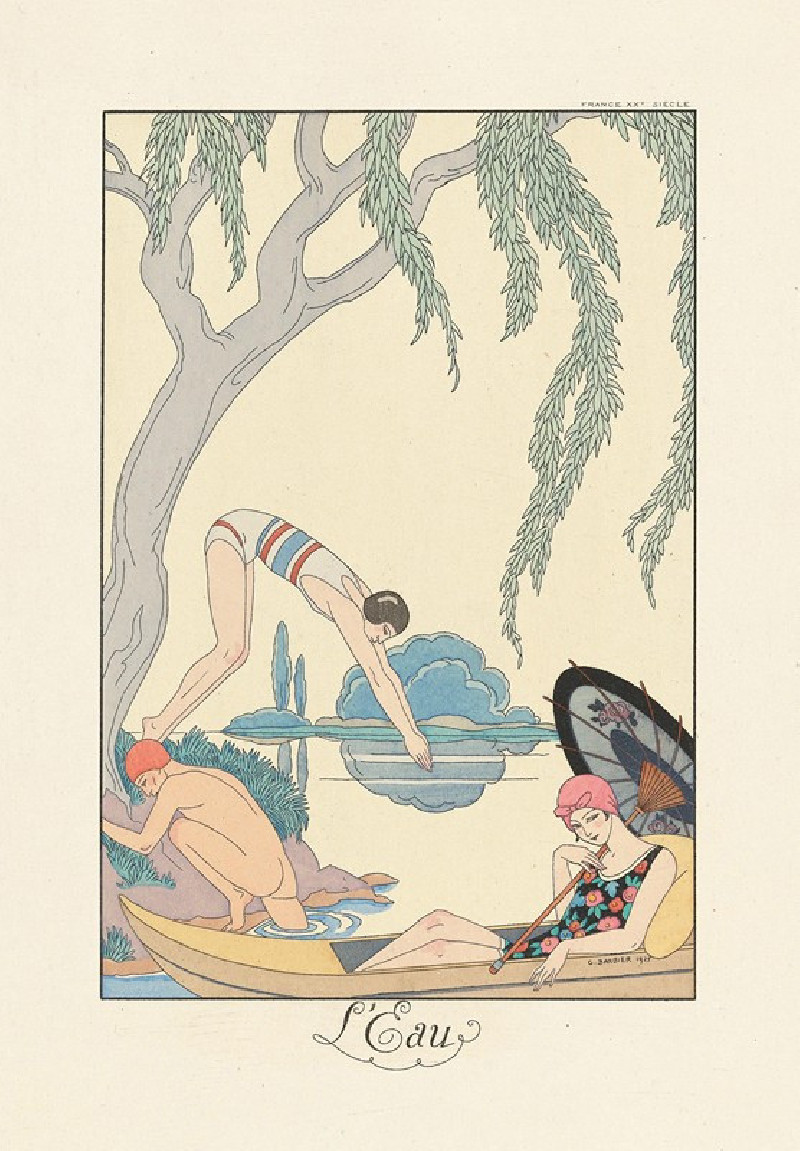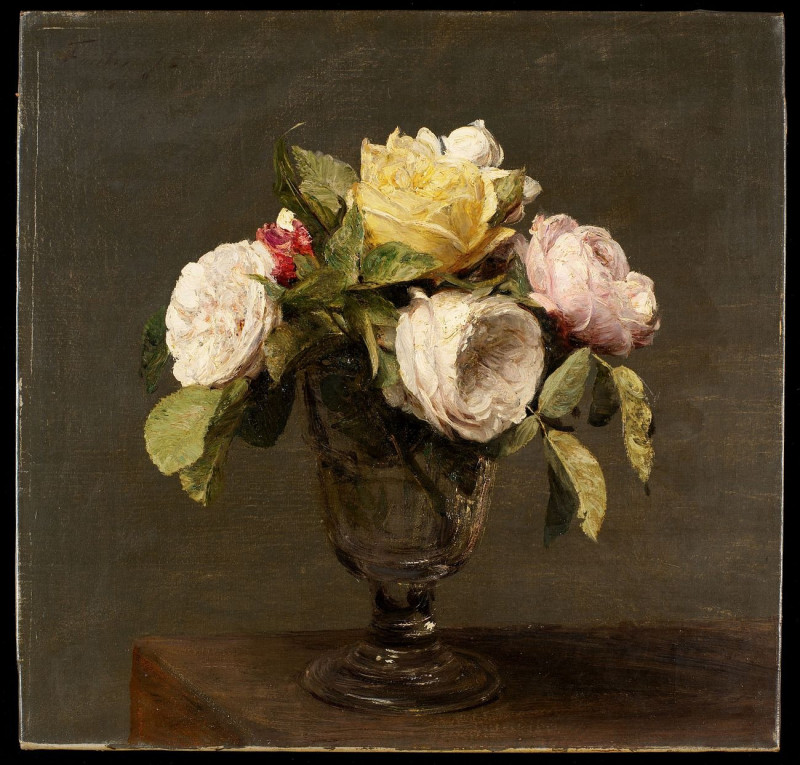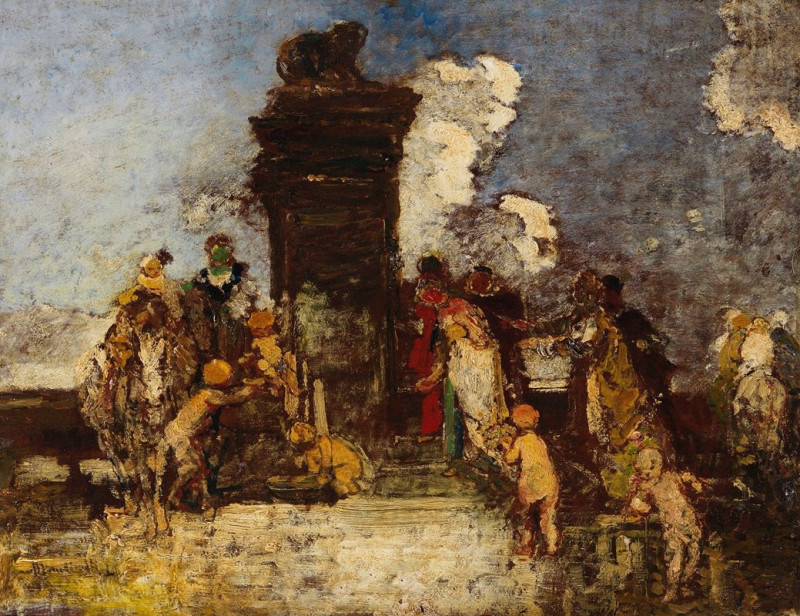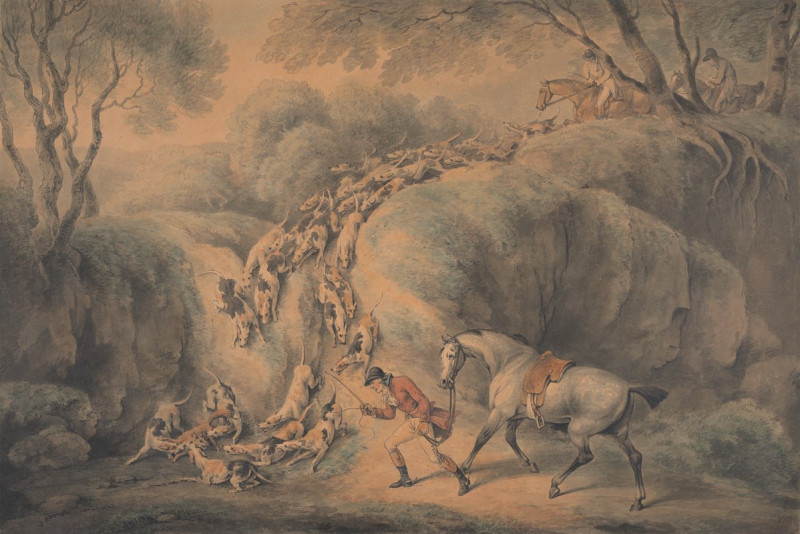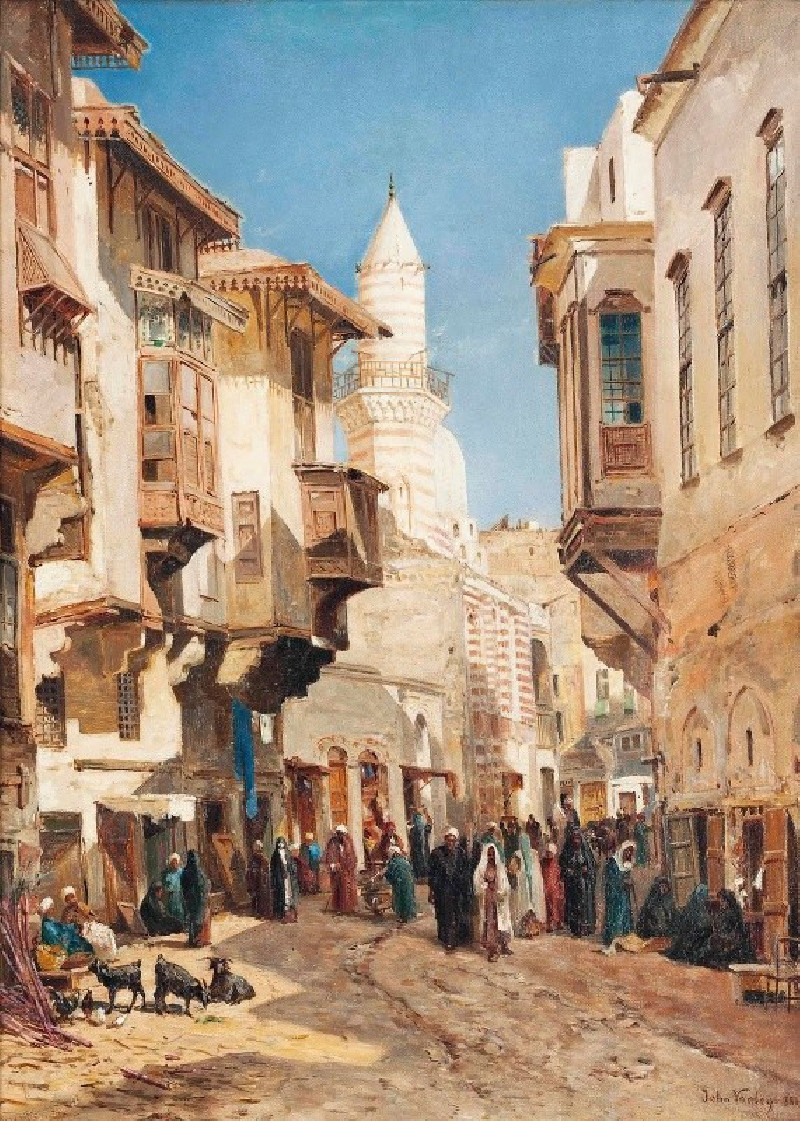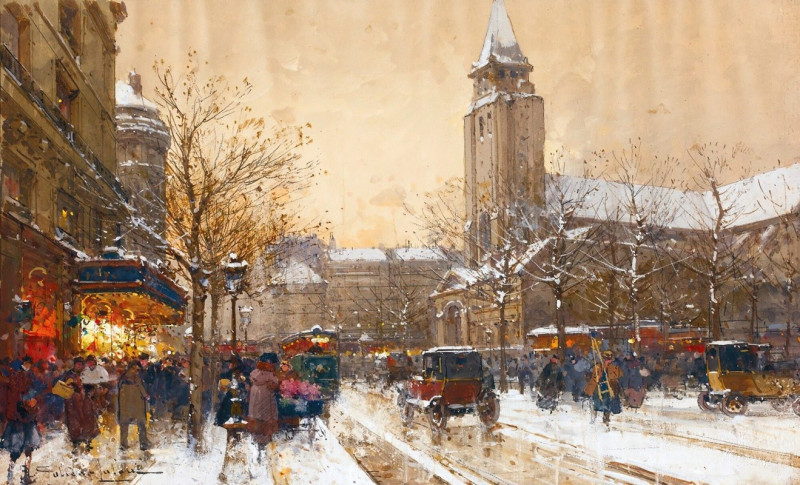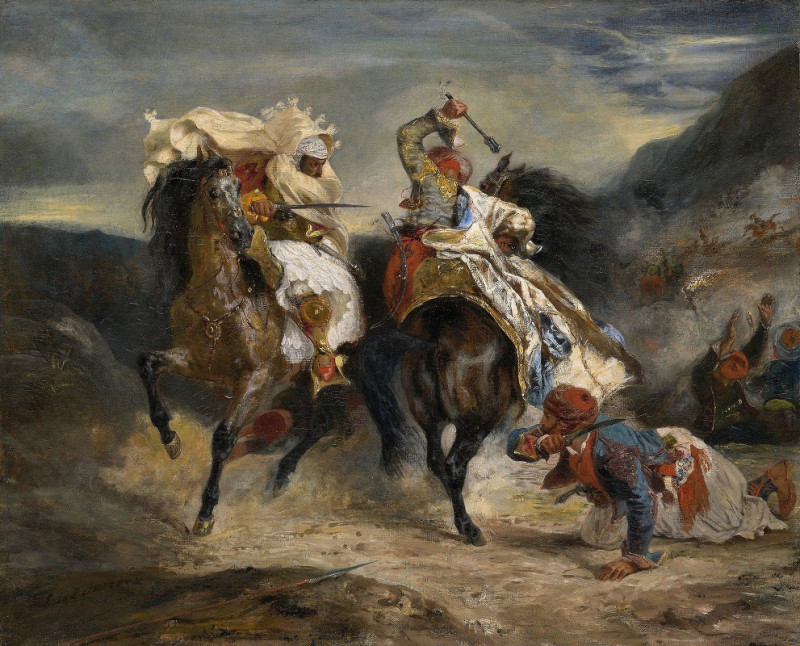The Grove (1900)
Technique: Giclée quality print
Recommended by our customers
More about this artwork
Nils Kreuger's painting "The Grove" from 1900 is a captivating exemplar of the Swedish National Romantic style, which emphasizes the beauty and spiritual essence of the Swedish landscape. This artwork vividly portrays a dense grove of trees clutched around a quaint, traditional stone house, exuding a quiet solitude and a profound connection to nature.The scene captures the stark contrast between the heavy, dark foliage of the grove against a luminous, intricate sky. Kreuger’s distinctive use of swirling, expressive lines in the sky adds a dynamic texture and movement that contrasts with the solid, almost brooding mass of the trees. Beneath the sky, the house sits comfortably nestled amongst the trees, conveying a sense of shelter and respite from the wide-open spaces that lie beyond.The earthy tones and organic lines used throughout the painting enhance its pastoral feel, making "The Grove" not only a depiction of a specific locale but also a timeless reflection on solitude and the human connection to the natural environment.
Delivery
Reproductions are made to order and take 5 to 7 working days.
We send them out by courier and delivery takes another two working days.
If you need a reproduction sooner, please contact us - we can usually find a solution and produce it a little faster.
If you don't want to pay for postage, you can pick up your paintings at our galleries in Kaunas or Vilnius.
Returns
Yes, reproductions can be returned.
If you have any doubts more than 30 days after the date of purchase, please contact us - we will take the reproduction back for a refund or offer you a replacement!
We accept a maximum of two returns per customer - please note that we make reproductions to order, so please choose responsibly.
We do not refund shipping expenses.


